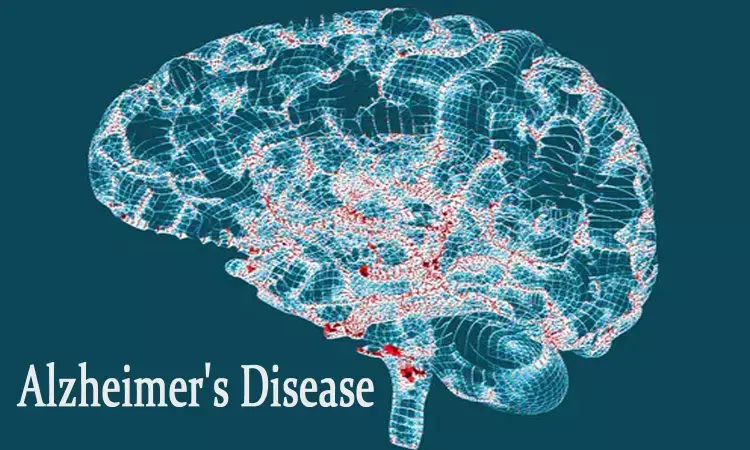- Home
- Medical news & Guidelines
- Anesthesiology
- Cardiology and CTVS
- Critical Care
- Dentistry
- Dermatology
- Diabetes and Endocrinology
- ENT
- Gastroenterology
- Medicine
- Nephrology
- Neurology
- Obstretics-Gynaecology
- Oncology
- Ophthalmology
- Orthopaedics
- Pediatrics-Neonatology
- Psychiatry
- Pulmonology
- Radiology
- Surgery
- Urology
- Laboratory Medicine
- Diet
- Nursing
- Paramedical
- Physiotherapy
- Health news
- Fact Check
- Bone Health Fact Check
- Brain Health Fact Check
- Cancer Related Fact Check
- Child Care Fact Check
- Dental and oral health fact check
- Diabetes and metabolic health fact check
- Diet and Nutrition Fact Check
- Eye and ENT Care Fact Check
- Fitness fact check
- Gut health fact check
- Heart health fact check
- Kidney health fact check
- Medical education fact check
- Men's health fact check
- Respiratory fact check
- Skin and hair care fact check
- Vaccine and Immunization fact check
- Women's health fact check
- AYUSH
- State News
- Andaman and Nicobar Islands
- Andhra Pradesh
- Arunachal Pradesh
- Assam
- Bihar
- Chandigarh
- Chattisgarh
- Dadra and Nagar Haveli
- Daman and Diu
- Delhi
- Goa
- Gujarat
- Haryana
- Himachal Pradesh
- Jammu & Kashmir
- Jharkhand
- Karnataka
- Kerala
- Ladakh
- Lakshadweep
- Madhya Pradesh
- Maharashtra
- Manipur
- Meghalaya
- Mizoram
- Nagaland
- Odisha
- Puducherry
- Punjab
- Rajasthan
- Sikkim
- Tamil Nadu
- Telangana
- Tripura
- Uttar Pradesh
- Uttrakhand
- West Bengal
- Medical Education
- Industry
Researchers develop less invasive, cost-effective blood test to detect deposits of Alzheimer proteins in brain

The blood test detects the abnormal accumulation of tau protein known as phosphorylated-tau-181 (ptau181), which is a biomarker of Alzheimer's disease.
US: A less invasive as well as cost-effective blood test has been developed by the researches from the National Institute of Ageing here which can diagnose Alzheimer's disease much early before their symptoms appear. The blood test detects the abnormal accumulation of tau protein known as phosphorylated-tau-181 (ptau181), which is a biomarker of Alzheimer's disease.
There are three typical hallmarks of Alzheimer's disease: plaques of beta-amyloid protein, tangles of tau protein, and loss of connections between brain cells.
Tau and other biomarkers can be detected with PET scans of the brain and lab tests of spinal fluid. However, PET imaging is expensive and involves radioactive agents, and spinal fluid tests require spinal taps, which are invasive, complex and time-consuming. Hence with this development of simple blood test, detection of the disease is made easy and reliable also.
Alzheimer's disease is a major cause of dementia that destroys brain cells and tissue. As the brain damage spreads, it leads to symptoms such as confusion, memory loss, and diminishing capacity to function. Eventually, the person can no longer lead an independent life. Hence there is an urgent necessity to derive at an early diagnosis.
"The considerable time and resources required for screening research participants with PET scans and spinal taps slow the pace of enrollment for Alzheimer's disease treatment studies," said Richard J. Hodes, M.D., director of NIH's National Institute on Aging (NIA), which funded much of the study. "The development of a blood test would enable us to rapidly screen a much larger and more diverse group of volunteers who wish to enroll in studies," he added.
An international team of researchers led by Adam Boxer, M.D., Ph.D., at the University of California, San Francisco, used the new test to measure the concentration of ptau181 in plasma. The samples were collected from more than 400 participants from the University of California, San Francisco Memory and Aging Center, part of the NIA-funded Alzheimer's Disease Research Center; the NIH-supported Advancing Research and Treatment for Frontotemporal Lobar Degeneration (ARTFL) consortium; and a research study sponsored by Eli Lilly.
Their study demonstrated that the ptau181 in plasma could differentiate healthy participants from those with Alzheimer's pathology, and differentiate those with Alzheimer's pathology from a group of rare neurodegenerative diseases known collectively as frontotemporal lobar degeneration (FTLD).
This may also help physicians to detect and diagnose Alzheimer's and related neurodegenerative disorders earlier when interventions are more likely to be effective.
In addition, they followed participants for several years and observed that high levels of plasma ptau181 among those who were cognitively normal or had mild cognitive impairment may be used to predict later development of Alzheimer's dementia. Their results have been published in Nature Medicine.
For more information read the following links,
Reference: Thijssen EH et al. Diagnostic value of plasma phosphorylated tau181 in Alzheimer's disease and frontotemporal lobar degeneration. Nature Medicine. March 2, 2020. doi: 10.1038/s41591-020-0762-2.
Janelidze S et al. Plasma P-tau181 in Alzheimer's disease: relationship to other biomarkers, differential diagnosis, neuropathology and longitudinal progression to Alzheimer's dementia. Nature Medicine. March 2, 2020. doi: 10.1038/s41591-020-0755-1.
MBBS
Dr K B AARTHI-has completed MBBS from SRM UNIVERSITY TAMIL NADU,Her interest is in the field of Pediatrics and Anaesthesia, also passionate in doing research and publishing articles.She joined Medical Dialogues in 2020 and publishes health news and medical updates. Email: editorial@medicaldialogues.in. Contact no. 011-43720751,9786713226
Dr Kamal Kant Kohli-MBBS, DTCD- a chest specialist with more than 30 years of practice and a flair for writing clinical articles, Dr Kamal Kant Kohli joined Medical Dialogues as a Chief Editor of Medical News. Besides writing articles, as an editor, he proofreads and verifies all the medical content published on Medical Dialogues including those coming from journals, studies,medical conferences,guidelines etc. Email: drkohli@medicaldialogues.in. Contact no. 011-43720751


